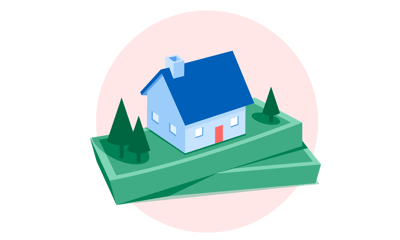Realtors, Real Estate Agents and Brokers: What’s the Difference?




If you’re preparing to buy a home, you might be wondering who to work with. Should you reach out to a real estate agent, a real estate broker or a Realtor?
Despite what many Canadians believe, these terms aren’t interchangeable. They describe three different jobs with unique responsibilities.
Real estate agents
BACK TO TOPA real estate agent is a salesperson who helps clients buy or sell property. Real estate agents work for a licensed real estate brokerage and have liability insurance.
Requirements vary by province, but in general, real estate agents have to be over the age of 18, legally allowed to study and work in Canada and have a high school diploma (or equivalent).
They must also complete a specific set of courses and submit to a criminal background check before writing their licensing exam. Some provinces have additional requirements for continuing education.
Real estate brokers
BACK TO TOPA real estate broker manages real estate agents employed by the brokerage, or real estate company.
Requirements to become a real estate broker vary by province, but brokers must work as an agent for a predefined period of time before continuing their education to become a broker.
Some provinces also require agents to complete a certain number of transactions before applying to become a broker. Educational requirements include completing the real estate broker program required by each province.
Real estate brokers are responsible for paying commissions to their agents and signing listing agreements with sellers. It’s up to them to ensure all transactions are accurate and error-free.
Think of a real estate broker as the business manager; you probably won’t deal with them regularly, but they are behind the scenes making sure everything is running smoothly and properly. That said, a broker doesn’t necessarily have to be a part of a large brand or company. A broker can choose to work for themselves.
» KNOW THE DIFFERENCE: What is a mortgage broker?
Realtors
BACK TO TOPA Realtor (that capital ‘R’ matters) is an agent or broker who is a member of the Canadian Real Estate Association (CREA). They have to bolster their qualifications and education to achieve the CREA’s trademarked title of REALTOR®.
Realtors pay an annual CREA membership fee and complete regular ethics training. They have to adhere to a strict moral code, so buyers and sellers should be able to expect these professionals to be fair and honest in all transactions.
You can tell if someone is a Realtor based on whether or not they have the trademarked Realtor symbol (REALTOR®) on their business cards and other marketing materials.
Best mortgage rates in Canada
Compare offers from Canada’s top mortgage lenders and brokers.
Which real estate professional is best for you?
BACK TO TOPReal estate agents, brokers and Realtors are all qualified to help you buy or sell your home. Realistically, you’re more likely to wind up dealing with an agent or Realtor since brokers often focus on managing operations while their salespeople deal with clients.
Because of their additional qualifications, working with a Realtor might seem like the ideal situation, but most licensed, experienced real estate agents should be able to answer all your questions and provide the service you deserve.
Rather than focusing on their job title, consider a real estate professional’s:
Experience.
Reputation.
Customer reviews.
Number of homes sold.
Your impression of them as a person.
It’s also a good idea to ask about their expertise in the specific neighbourhoods or types of properties you’re interested in exploring. These factors that really matter.
DIVE EVEN DEEPER


